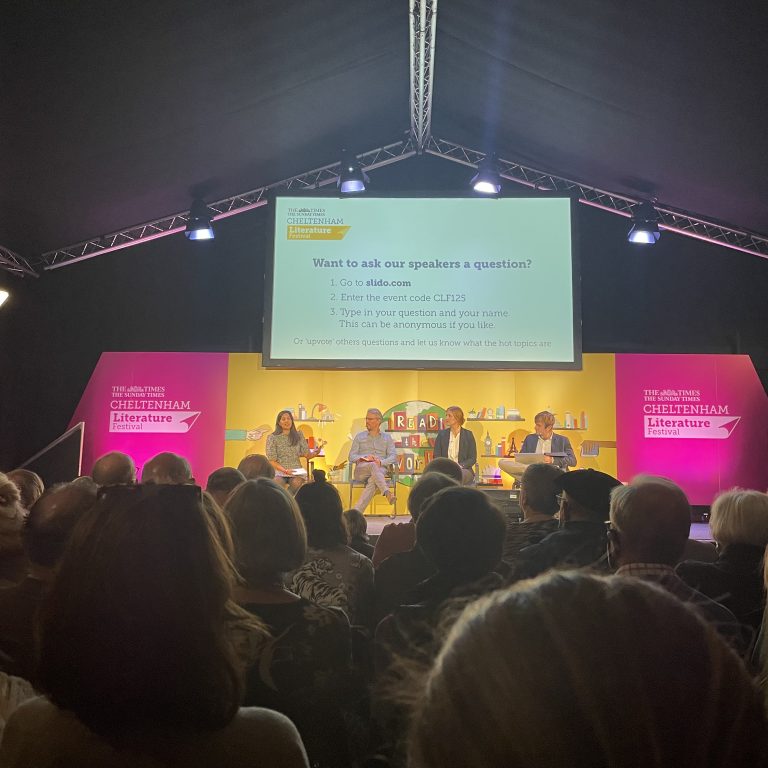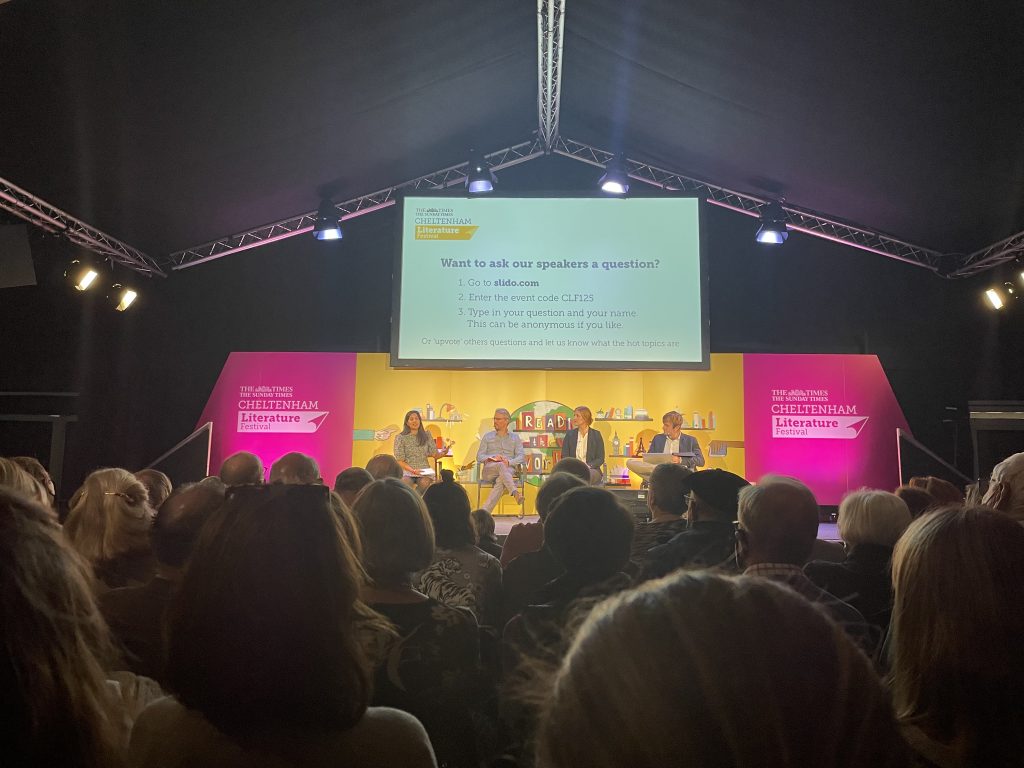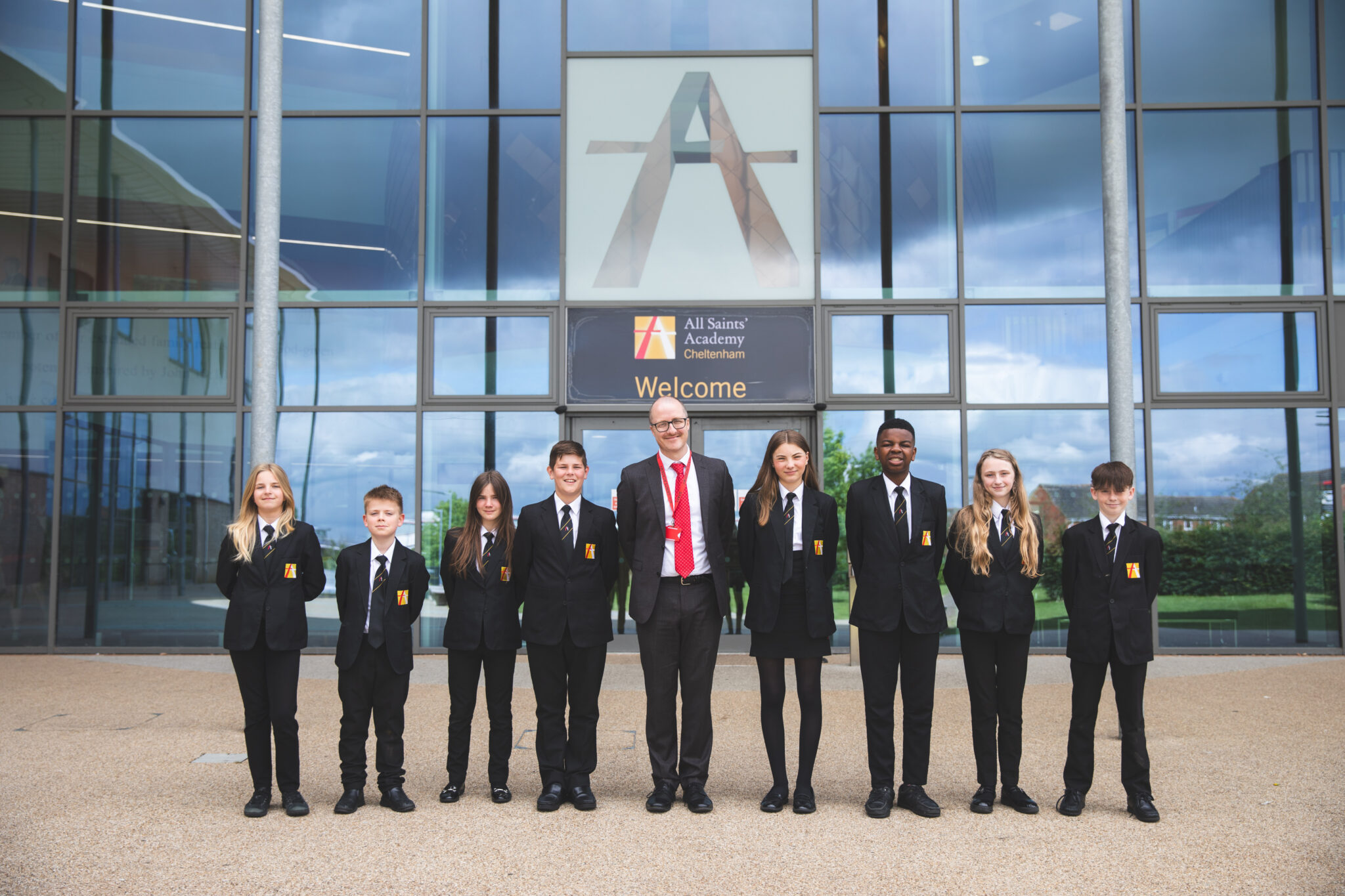By Viki, Year 12 Student
This week, students from All Saints’ Academy attended a Climate Crisis talk at the Cheltenham Literature Festival.
The predominant question, which was central to this talk: ‘’Is it now or never for our planet?’’ The panel featured The Times Science Editor Tom Whipple, International climate policy specialist Rebecca Peters, Director of Uplift Tessa Khan, and sustainability expert Tobias Parker. Conjointly, they discussed the key environmental concerns at the present moment and leading on from that, what the international priorities are and how we can make a change as a collective.
Tessa Khan explored the role of the law in tackling climate change. She reminded us of the national goal to keep temperatures at a maximum of a 1.5 degree increase and the issue with world-wide governments not fulfilling their part within this goal. This was done through the shocking statistic that we are currently at a 3-degree increase. The basis of her points was that governments within each country must be held accountable for their contributions to climate change and their promises of making improvements.
The impact of fossil fuels was also highly emphasised by the fact that 80% of oil, gas and coal contribute to the ever-rising carbon emissions. Since the Paris agreement signed at COP21 in 2015, which entailed a duty to aid the climate change issue, £4 billion has still been provided for oil and gas extractions by the UK. This clearly presents that there is still a lot of work to be done.
Tobias Parker touched on the business side of these contributions, the complications that they possess and what needs to be changed. He stated that markets are a huge part of where the solution lies due to production and packaging choices. He suggested that there is a need for different measures and metrics to be created to see more qualitative data, within which solutions can be found. For instance, data regarding pricing, how countries interact with carbon dense goods and production. It was also clarified that businesses require more government support in order to reduce carbon emissions and become more environmentally friendly.
Is it too late?
According to IPCC’s latest report, there is still time to act if we act now. We’re at a turning point of national, individual, business and societal choices. Through the accessibility of information about the climate crisis in this day and age, we are able to create a collective effort to help stop this, which is very much needed. This must be done through raising the ambition of national climate plans and supporting climate vulnerable countries. It is incredibly important that we all play our part in order for a significant change to occur.
What can we do?
Rebecca Peters displayed the importance of hope as this emotion inspires us to contribute to collective change. She explained that whilst it is important to assess how you can help as an individual by, for example changing your eating habits to veganism, focusing too much on individual choices can blind us to the bigger picture.
Therefore, it was suggested that the 3 main things to improve as a collective right now are:
- Ensuring heating and electricity is green tariff
- Making changes to buying habits – what we are consuming and where it comes from
- Being clear on where our investments go in regard to the environmental choices that businesses make
Crucially, however, many of us do not have the financial means to make such changes. As a result, Tessa Khan suggested these 3 things we can do, additionally, to help.
- Voting for political parties that are serious about supporting the climate change movement
- Holding politicians accountable and speaking up about issues
- Not giving support to fossil fuel industries due to the fact that they are such a large contribution to climate change
From this, we were able to deduct that there is still time left to act and so consequently there is hope, and we still can make a change. We are now aware of the most prominent environmental issues internationally and have been provided with several goals that we can set ourselves both individually and as communities in order to do our part. We look forward to COP26 and further talks just like this one to provide us with more information on how we, as an academy, can support this immediate and vital issue.




